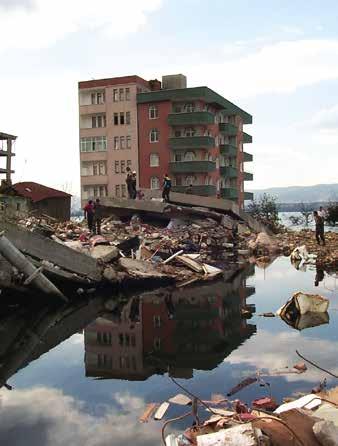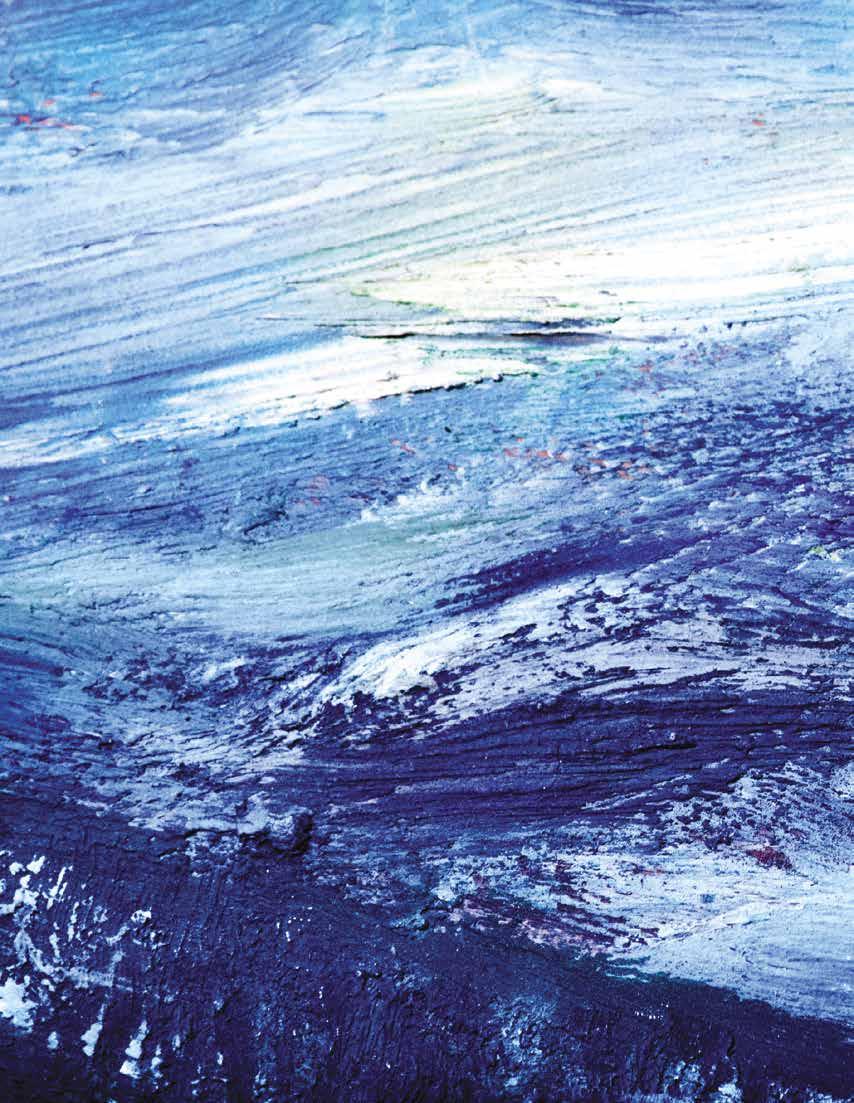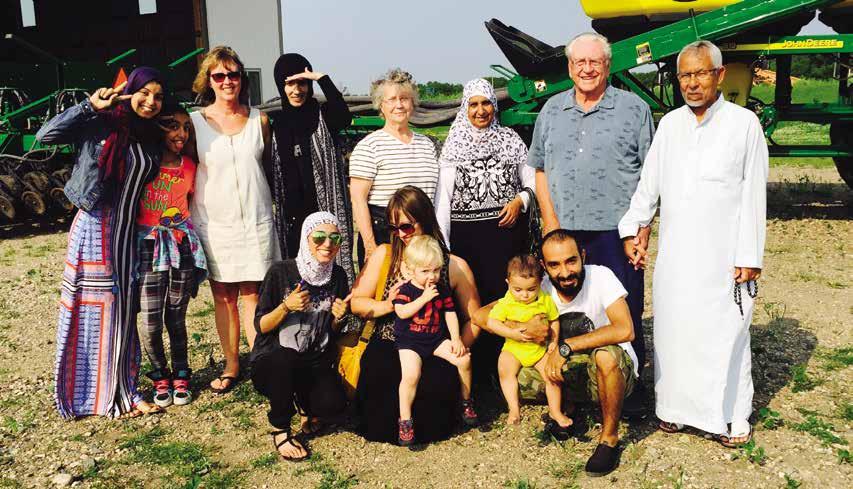
6 minute read
Some Things Change Forever
by Nakafu Kahasha
“Shhhhhshhhhh,” my mom whispered. I was shaking uncontrollably. My two brothers, parents, and I were hiding under the bed. We heard people screaming outside, women, men, and children. I was scared and I started to cry. My mom told me to be quiet so that they wouldn’t hear us.
Advertisement
After about five or six hours, it was dark outside and we came out from under the bed. We were hungry, so we were lucky we had bread and water.
“Eat faster, so we can find a way to leave to a safe place,” my mom said.
“But where are we going?” I asked my father.
“We are going to Kigoma, Tanzania,” my father replied. In the middle of the night we left. I didn’t even have a chance to say goodbye to my friends because everyone was in their houses, probably hiding under their beds.
The reason I had to leave my home was because of the war. At the time, I was very young, and I was confused by many things that were going on. The soldiers from Rwanda and Congo were fighting because the people in Congo didn’t want the people in Rwanda to take their property. So, the soldiers from Rwanda would knock on the doors of the Congolese people and say that they were family. When the people would open the door, the soldiers would shoot them.

Nakafu Kahasha, left, works at McDonald’s restaurant in Fargo in addition to attending high school classes.
Photo by Andrew Cullen.
My family and I started making our journey to Kigoma, Tanzania. When we got to the road, there were a lot of soldiers.
“Unaenda wapi?” the soldiers yelled at our driver.
The driver lied to them, “I am taking the women to give birth in a different country.”
“Where is your passport?” they shouted. The driver showed his passport to them and they let us go.
We arrived in Kigoma, Tanzania, after two days and we stayed there for one year. Then my mom and dad went back to Congo because my uncle called them to inform them that my grandpa had died. They left me and my two brothers in Tanzania. I was sad because I didn’t have a chance to say goodbye to my grandpa. After one month, my grandma also died, so my mom and dad stayed in Congo even longer. I never saw my parents again. I never got a chance to say goodbye to my parents in person.
While in Kigoma, we got a call from my uncle in Congo. “There are some people coming to kill you!” my uncle yelled into the phone. It had been six months since my parents left. My brothers and I knew we had to leave Kigoma. We escaped to the Kanembwa Refugee Camp.
When we arrived, we saw so many people in the camp. There were many children. Later that day, the boys and girls were placed into different huts to sleep, and they got blankets and food. I had to share a place with other girls that I didn’t know. I was only six years old and it was scary. We even had to share the buckets for bathing and the outdoor bathrooms. Days went by and I missed my parents, but there was nothing I could do about it. I just cried and cried.
After months, I got used to the Kanembwa Refugee Camp. I met some girls who were nice, and we became friends. Almost a year passed by and we were still at the camp. I got really sick. The nurse at the camp did not know what was wrong with me. My brothers were really worried. The medic decided to take me to another small town that had better doctors. I went there and stayed in the hospital for about one month. After I felt better, we went back to the camp. Then after two weeks, I got sick again. My brothers were worried and scared because they didn’t know what was wrong with me. The doctors said it was malaria. My whole refugee life was spent sick in the hospital.
I had been in the camp for two and a half years, when I finally did an interview to immigrate to the USA.
“Unajua nini Nakafu?” my brother, Aniceth, asked.
“What? Are you serious? We are going to the US?” I asked.
He told me we were going to America but I didn’t believe him. Then, I went to ask my brother, Eric, if it was true, and . . . it was! Everyone was excited, but then I got nervous.
One month passed and we were all busy getting everything ready. During that month, we all had to get checkups. It seemed like every day we went to a clinic and got shots or some different medicine. I didn’t like the medicine, but in order to come to America, everyone had to take the medicines.
The day we left the camp, all my friends cried as they said goodbye to me. I was really sad and scared, but excited. We got into a big bus and we went to the airport. I was scared because I never rode in an airplane! My brothers told me everything was going to be okay and somehow I managed to get on the bus. We got to the airport and we had to find the airplane. As soon as I sat down, I was not nervous anymore. The people in the airplane gave us tons food, and it was delicious.
Later, we got off at an airport in Nairobi, Kenya. There was a hotel there and we stayed overnight. Early in the morning, we left on another plane that was bigger than the last one. We flew to Kenya, France, Chicago, and finally to Fargo. I don’t know how many planes we took but it seemed like a lot. The last plane we took landed in Fargo. I got off and I was scared because it was really cold and everything was white.
“What is this?” I asked my brothers. Before my brothers could reply to me, there were men standing near us with big coats, scarfs, and boots.
“My name is Chris,” one man said, and pointed to himself. “Put these on,” he said, handing us winter clothing.
“Thank you,” we said. We put on the stuff and we felt warmer. I pointed to the white stuff on the ground.
“What’s this called?” I asked Chris.
“This is called snow,” he replied.
“Mungu wangu kweli hii baridi,” I said, in disbelief of how something could be so cold outside. We got into the car and he took us to our new home. He was talking, but we did not understand him. So when he smiled, we just smiled back. I thought that the land looked amazing but nothing like home, in Africa. We were in the car and dressed up in big coats but we were still cold. We stopped and got out of the car. We went into a tall building. Chris told us it was where we would be staying.
“Wow, this is a beautiful house!” I said, with surprised look on my face. I smiled thinking about our wonderful new place, but deep down I still felt sad because I knew my parents would never be able to share this life with us.
---
SWAHILI LANGUAGE GLOSSARY
Unaenda wapi? - Where are you going?
Unajua nini? - Guess what?
Mungu wangu kweli hii baridi. - Oh my God, this is really cold.
---
NAKAFU KAHASHA was born in Congo and grew up in Tanzania. She came to the United States on April 12, 2010, with her two brothers, her sister-in-law, and her twin nieces. She is sixteen years old and a sophomore at Fargo South High School. She speaks four languages: Swahili, Kirundi, Kinyarwanda, and English. Nakafu has been learning English for four years. She likes to play soccer and volleyball and to dance. Her favorite subjects are math and history. She wants to be a nurse, a lawyer, or a flight attendant when she finishes college.










